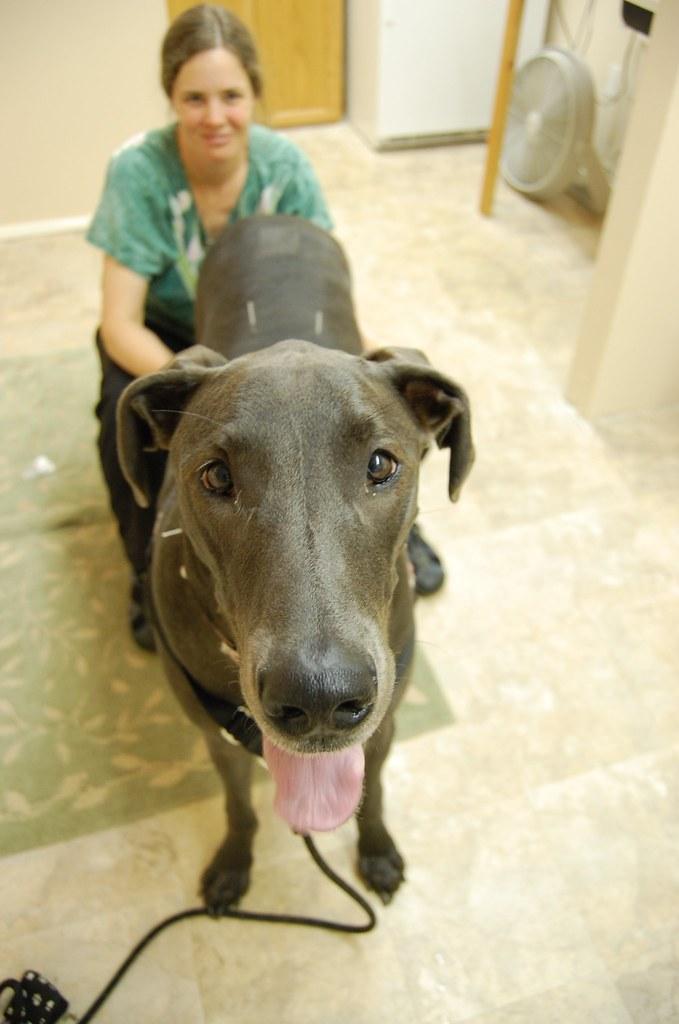In a world where our pets are cherished family members, their health and well-being are paramount. As we explore avenues beyond conventional veterinary care, a question arises: should alternative therapies, like acupuncture, be part of our furry friends’ wellness journey? Imagine a serene setting where a gentle touch and ancient wisdom converge, offering comfort to our beloved companions. This exploration delves into the realm of holistic healing, seeking to understand if these age-old practices can harmonize with modern pet care, and ultimately enhance the lives of those who bring us endless joy.
Exploring the Pawsibilities: Alternative Therapies for Pets
In recent years, there’s been a growing interest in alternative therapies for our furry friends. From acupuncture to herbal remedies, pet owners are exploring a variety of options to enhance their pets’ well-being. While some may be skeptical, many have witnessed remarkable improvements in their pets’ health through these holistic approaches.
Consider the potential benefits of these therapies:
- Acupuncture: Known to relieve pain and improve mobility, especially in older pets.
- Chiropractic Care: Helps with alignment issues, potentially improving overall physical function.
- Herbal Supplements: Offers natural support for various ailments, from anxiety to digestive issues.
- Massage Therapy: Can reduce stress and enhance circulation, promoting relaxation and healing.
Before diving in, it’s essential to consult with a qualified veterinarian who understands these therapies. They can guide you in tailoring a treatment plan that suits your pet’s unique needs, ensuring safety and effectiveness.

Understanding the Science Behind Acupuncture and Animal Health
Acupuncture, a practice rooted in Traditional Chinese Medicine, involves inserting fine needles into specific points on the body to promote healing and balance. In animals, it is believed to stimulate the release of endorphins, enhance blood circulation, and reduce inflammation. Veterinarians trained in this ancient technique often use it to address various conditions, such as arthritis, allergies, and even anxiety. The approach is non-invasive and can complement conventional treatments, making it a popular choice for pet owners seeking holistic care.
- Benefits: Pain relief, improved mobility, reduced stress.
- Applications: Chronic pain, neurological disorders, digestive issues.
- Considerations: Consult with a certified veterinarian to ensure it’s suitable for your pet’s specific needs.
While scientific research on acupuncture’s efficacy in animals is still evolving, anecdotal evidence and some studies suggest it can be beneficial. Understanding the underlying principles of energy flow and the body’s natural healing capabilities may help bridge the gap between traditional and modern veterinary practices.
Weighing the Benefits and Risks: What Pet Owners Should Know
When considering alternative therapies for pets, it’s essential to balance both potential benefits and risks. Acupuncture, for instance, is renowned for its ability to alleviate pain and improve mobility, especially in pets suffering from arthritis or chronic pain. This ancient practice can also enhance overall well-being by promoting relaxation and reducing stress.
- Benefits:
- Non-invasive and drug-free.
- May improve quality of life for aging or injured pets.
- Can complement traditional veterinary treatments.
- Risks:
- Requires a certified practitioner for safe application.
- Not all pets may respond positively.
- Potential for discomfort during initial sessions.
Engaging in a thoughtful discussion with your veterinarian can help you determine if such therapies align with your pet’s specific needs and health conditions.

Guiding Your Choice: Expert Tips for Integrating Alternative Care
When considering alternative therapies like acupuncture for your pets, it’s essential to take a thoughtful approach. Consult with a qualified veterinarian who is open to integrative medicine. They can help determine if alternative treatments are suitable for your pet’s specific condition. It’s important to ensure the practitioner is certified and experienced in treating animals.
- Research the therapy: Understand the benefits and limitations of the alternative treatment you are considering.
- Monitor your pet’s response: Keep a close eye on any changes in behavior or health after sessions.
- Combine with traditional care: Use alternative therapies as a complement, not a replacement, to conventional veterinary medicine.
Remember, every pet is unique, and what works for one may not work for another. Trust your instincts and work closely with professionals to ensure your furry friend receives the best care possible.


































